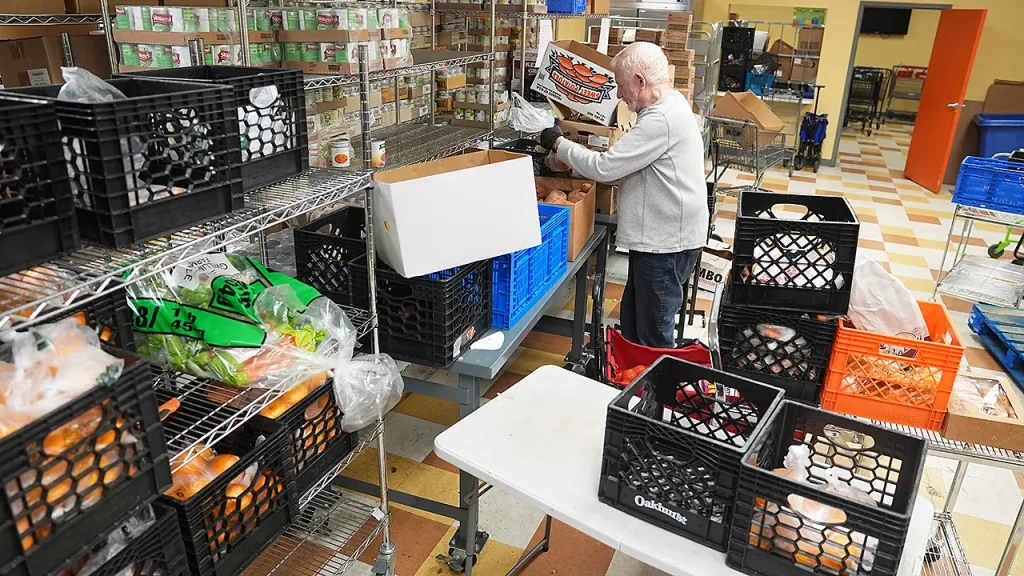Listen to the article
The Supreme Court has temporarily halted a lower court order that would have required the Trump administration to fully fund the Supplemental Nutrition Assistance Program (SNAP) amid the ongoing government shutdown.
The emergency ruling came late Friday after a series of rapid legal developments. Earlier that day, a federal appeals court had denied the administration’s request to block U.S. District Judge Jack McConnell’s order, which gave officials just 24 hours to restore complete funding for the program that serves approximately 42 million low-income Americans.
“People have gone without for too long,” McConnell had stated in court when issuing his original directive on Thursday. The judge rejected the administration’s proposal to provide only partial funding—about 65% of the roughly $9 billion needed for November benefits—and ordered officials to utilize contingency funds as necessary to meet obligations.
The Department of Justice quickly escalated the matter to the Supreme Court, arguing that the lower court’s demands posed “imminent, irreparable harms” by requiring the government to transfer an estimated $4 billion by Friday night. The administration spokesperson emphasized the urgency of the situation in requesting “an immediate administrative stay” pending resolution.
The Supreme Court’s intervention represents the latest development in an unprecedented crisis for SNAP, which experienced its first funding lapse in its 60-year history when payments were halted on November 1 due to the shutdown.
New York Attorney General Letitia James expressed strong criticism of the Supreme Court’s decision. “This decision is a tragedy for the millions of Americans who rely on SNAP to feed their families,” she said in a statement. “It is disgraceful that the Trump administration chose to fight this in court instead of fulfilling its responsibility to the American people.”
Before the Supreme Court ruling, the U.S. Department of Agriculture had begun preparations to comply with Judge McConnell’s order. Patrick Penn, deputy undersecretary for USDA’s Food, Nutrition and Consumer Services, had sent a letter to all regional SNAP directors indicating the department was working toward implementing “November 2025 full benefit issuances” as mandated by the court.
The judge had been particularly critical of the administration’s handling of the situation, noting that officials failed to address known distribution problems that could delay benefits for weeks or months in some states. “It’s likely that SNAP recipients are hungry as we sit here,” McConnell remarked during Thursday’s hearing.
The legal battle highlights the growing humanitarian concerns surrounding the government shutdown. Food banks and emergency assistance programs across the country have reported significant increases in demand as SNAP recipients seek alternative sources of food support. Community organizations warn that their resources are already stretched thin and cannot sustainably replace the federal nutrition program.
“The evidence shows that people will go hungry, food pantries will be overburdened, and needless suffering will occur,” McConnell had stated. “That’s what irreparable harm here means.”
The SNAP funding dispute exemplifies the broader impacts of the shutdown, which has now affected multiple essential government services. Nutrition assistance programs are particularly vulnerable during budget impasses, as they directly affect daily necessities for millions of Americans, including children, elderly individuals, and those with disabilities.
As the legal process continues, the immediate future of SNAP funding remains uncertain, leaving beneficiaries in limbo as they await resolution between the courts, the administration, and legislative branches over how and when food assistance will resume.
Fact Checker
Verify the accuracy of this article using The Disinformation Commission analysis and real-time sources.




12 Comments
The SNAP program is a critical safety net, so I’m troubled by the Supreme Court’s decision to temporarily halt the order requiring full funding. This could have serious consequences for vulnerable families during the shutdown.
You raise a good point. Disruptions to SNAP benefits could push many households into food insecurity, which would be a devastating outcome. I hope the courts can swiftly resolve this to avoid that scenario.
The SNAP program is crucial for addressing food insecurity, so the Supreme Court’s decision to temporarily halt the order requiring full funding is troubling. I hope the courts can swiftly resolve this dispute to ensure vulnerable Americans don’t go without this vital assistance.
This is a complex issue with valid concerns on both sides. While the administration is worried about the ‘imminent, irreparable harms’ of the lower court’s order, the need for full SNAP funding during the shutdown is clear. I’ll be closely following how this plays out.
This is a tricky situation with significant implications for low-income households. While the administration’s concerns about logistical challenges are understandable, the need for uninterrupted SNAP benefits during the shutdown seems paramount. I’ll be watching closely to see how this unfolds.
The SNAP program is a vital lifeline for millions of Americans, so the Supreme Court’s decision to temporarily halt the order requiring full funding is concerning. I hope the courts can quickly resolve this dispute to ensure vulnerable families don’t go without food.
The Supreme Court’s decision to temporarily halt the order requiring full SNAP funding is concerning. This program is a vital lifeline for many struggling families, and disruptions could have severe consequences.
You’re right, the SNAP program is crucial. I hope the courts can quickly resolve this dispute to ensure vulnerable Americans don’t go without food during the shutdown.
This is a tricky situation, with the administration arguing the lower court’s demands pose ‘imminent, irreparable harms.’ However, the need for full SNAP funding during the shutdown seems clear. I’m curious to see how this plays out.
Agreed, it’s a complex issue with valid concerns on both sides. Hopefully a balanced solution can be found that protects SNAP recipients while also considering the government’s logistical challenges.
This is an important ruling around the SNAP program, which provides critical food assistance to millions of Americans. It will be interesting to see how this plays out between the administration and the courts.
Indeed, the administration appears to be fighting this order quite vigorously. The impact on low-income families during the shutdown is significant.